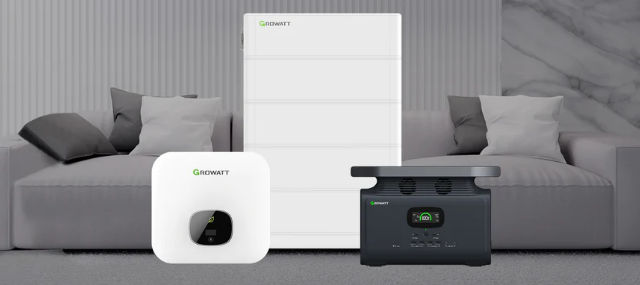In today's world, where sustainability and environmental consciousness are increasingly important, finding energy-efficient and environmentally friendly solutions is crucial. This mindset extends to backup generators, which are essential for providing reliable power during emergencies and outages. By choosing a backup generator that is both energy-efficient and environmentally friendly, we can minimize our carbon footprint and contribute to a cleaner and greener future. Here are some recommendations for such generators:
- Inverter Generators: Inverter generators are known for their energy efficiency and eco-friendly operation. Unlike conventional generators, which run at a constant speed regardless of the load, inverter generators adjust their speed based on the power demand. This feature not only saves fuel but also reduces noise levels and exhaust emissions. Inverter generators produce clean and stable power, making them suitable for powering sensitive electronics such as laptops, smartphones, and medical equipment.
- Propane or Natural Gas Generators: Propane and natural gas generators are considered cleaner alternatives to diesel or gasoline generators. Propane is a low-emission fuel that burns cleaner and produces fewer greenhouse gas emissions. Natural gas, which is a cleaner-burning fossil fuel, also offers similar benefits. Propane and natural gas generators are not only more environmentally friendly but also require less maintenance compared to their gasoline or diesel counterparts.
- Hybrid Generators: Hybrid generators combine the benefits of multiple power sources to provide energy-efficient and eco-friendly operation. These generators typically integrate solar panels or wind turbines with a backup fuel-powered generator. The renewable energy sources (solar or wind) contribute to power generation during normal conditions, while the backup generator kicks in during high-demand or low-renewable energy situations. This hybrid approach reduces fuel consumption, emissions, and reliance on non-renewable resources.

- Diesel Generators with Advanced Emissions Controls: While diesel generators are known for their reliability and high power output, they can be less eco-friendly due to higher emissions. However, some modern diesel generators come equipped with advanced emissions control technologies such as diesel particulate filters (DPF) and selective catalytic reduction (SCR) systems. These technologies help reduce harmful emissions, making diesel generators more environmentally friendly and compliant with emissions regulations.
- Smart Grid-Ready Generators: Smart grid-ready generators are designed to integrate seamlessly with the electrical grid and take advantage of peak/off-peak energy pricing. These generators can be programmed to automatically switch on during periods of low electricity demand or when energy prices are lower. By utilizing electricity from the grid when it's more cost-effective, smart grid-ready generators can help save money and optimize energy usage.
- Energy Management Systems: In addition to choosing an energy-efficient generator, implementing an energy management system can further optimize power usage and reduce waste. These systems monitor and control the energy consumption of various appliances and systems, ensuring that power is directed where it is needed most efficiently. By identifying and eliminating energy inefficiencies, energy management systems can contribute to overall energy savings.
When selecting an energy-efficient and environmentally friendly backup generator, it's important to consider factors such as power requirements, fuel availability, emissions, noise levels, and maintenance requirements. Additionally, consulting with professionals or experts in the field can provide valuable guidance in choosing the most suitable generator for your specific needs.
By investing in energy-efficient and environmentally friendly backup generators, we can reduce our environmental impact, promote sustainability, and ensure a reliable power supply during emergencies. These generators not only provide peace of mind but also contribute to a cleaner and greener future for generations to come.